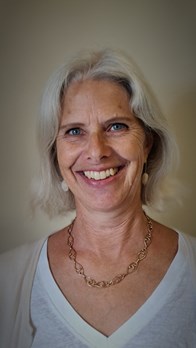Psychiatry
Psychiatrists treat patients and work with the patient's general practitioner and other primary health care providers, families and carers of patients, and the general community. The work of psychiatrists includes the prevention, management, and relief of suffering caused by a range of developmental, emotional, behavioural, and cognitive disorders.
Training is primarily in the apprenticeship model, with registrars working alongside psychiatrist supervisors in multidisciplinary clinical teams. Clinical experience in a variety of areas is required, via rotation through training attachments in which experience is gained in adult psychiatry both in inpatient and community settings, consultation-liaison psychiatry in a general hospital, old age psychiatry and child and adolescent psychiatry. Additional subspecialty psychiatric experiences may include rehabilitation, forensic psychiatry, drug and alcohol services, etc. During these attachments trainees must receive at least three hours of clinical supervision per week and at least one hour per week of individual supervision, for at least 40 weeks of the year.
There are about 80 trainees in the Northern Region Psychiatry Training Programme (NRPTP) which covers Auckland and Northland. Northland recruits its own registrars, and they work within the district and attend the Formal Education Course (FEC) either in person in Auckland or via Zoom. All Auckland-based trainees rotate through a variety of inpatient units, community mental health centres and subspecialty teams across the three Auckland districts (Counties Manukau District (South Auckland), Te Toka Tumai Auckland District (Central Auckland) and Waitematā District (North & West Auckland).
Auckland offers cultural training in Māori, Pasifika and Asian mental health, and there is additional support for Māori trainees including an annual wānanga for Māori psychiatrists and trainees. Te Kaunihera also have regular two monthly group cultural supervision for Māori trainees to support with some of the cultural loading they may experience. In addition, there is financial support available through the Royal Australian and New Zealand College of Psychiatrists (RANZCP) for Māori trainees.
Hear what our Psychiatry trainees have to say about training in Auckland here
Interview

Dr Penny Woods, Director of Training, Psychiatry
⇡ TopSub Specialities
- Addiction psychiatry
- Adult psychiatry
- Child and adolescent psychiatry
- Consultation-liaison psychiatry
- Forensic psychiatry
- Māori mental health
- Psychiatry of old age
- Psychotherapies
Sites and Resources
Hospital Sites
-
Te Toka Tumai Auckland District (Central Auckland) Mental Health Services
- Waitematā District (North & West Auckland) Mental Health Services
- Counties Manukau District (South Auckland) Mental Health Services
- The Royal Australian and New Zealand College of Psychiatrists
- The Northern Region Psychiatry Training Programme (NRPTP)
- Ministry of Health Careers Information on Psychiatry
How to train as a Psychiatrist
Training takes 5 years in total. Stage 1 (1st year) is basic training in Adult Psychiatry. Stage 2 (2nd & 3rd years) are a series of six-month supervised rotations in different subspecialties. There are three written examinations, Psychotherapy Written Case (PWC) and a Scholarly Project to complete in addition to clinic competency assessments. During the first three years of training registrars must gain experience and demonstrate various competencies, such as ‘The application and use of the Mental Health Act’ and ‘Psychodynamically informed patient encounters and managing the therapeutic alliance.’
Stage 3 (4th & 5th years) may be done in a subspecialty so as to achieve that Certificate in Advanced Training in addition to the Fellowship qualification. Fellowship is awarded on satisfactory completion of Stage 3, after a minimum of five years training.
The Northern Region Psychiatry Training Programme (NRPTP) provide a Formal Education Course (FEC) in all Stages of training. Trainees attend this FEC one day per week each, for two university-style semesters of twelve weeks.
Trainees are supervised by The Royal Australian & New Zealand College of Psychiatrist (RANZCP) accredited supervisors throughout their training. Formative workplace-based assessments are completed with supervisors and help shape skills and competencies through verbal and written feedback.
Click here to see and apply for current and future jobs
⇡ TopNews and Highlights
Congratulations to the RANZCP second round of 2024 College award winners:
- The Maddison Medallion – Dr Alisha Vara
- The Pirika Taonga – Dr Claire Paterson
Congratulations to the RANZCP 2025 College award winners:
- The College Medal of Honour – Dr Murray Patton
Contacts
Who can I talk to and where to next?
Queries about the Auckland Training Programme and about recognition of previous or overseas training should be directed to:
fiona.tomlinson@waitematadhb.govt.nz
jennifer.pasternack@northlanddhb.org.nz
- Anaesthesia
- Emergency Medicine
- General Practitioners
- Intensive Care Medicine
- Medicine
- Obstetrics and Gynaecology
- Ophthalmology
- Oral Health
- Paediatric Medicine
- Palliative Medicine
- Pathology
- Psychiatry
- Public Health
- Radiology
- Radiation Oncology
- Rehabilitation Medicine
- Sexual Health
- Surgery and Surgical Specialities
- Dermatology
+64 9 631 0707
More contact details: Address RMO Recruitment Contacts
Postal Address
Health New Zealand | Te Whatu OraWorkforce Operations Northern
PO Box 112147,
Auckland 1642, New Zealand
Physical Address
Health New Zealand | Te Whatu OraWorkforce Operations Northern
James Fletcher House, Level 3
Connect Business Park
581-585 Great South Road
Penrose, Auckland 1061
